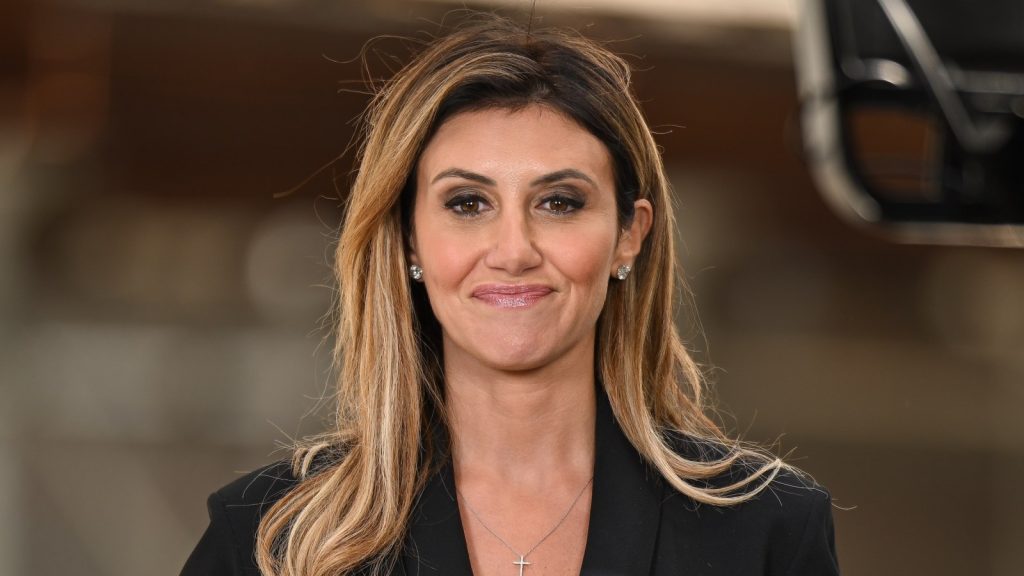Alina Habba — Trump’s former personal lawyer who, a court recently ruled, has been illegally serving as U.S. attorney in New Jersey — accused federal judges of “a collusion” against her.
U.S. District Judge Matthew Brann said last week that Habba “is not lawfully holding the office of United States Attorney” because the Senate has not confirmed her position, and the time limit during which she can serve as interim U.S. attorney without such confirmation expired on July 1. Late last month, because Habba’s interim term was ending, New Jersey district court judges exercised their judicial power under the law and named Habba’s second-in-command in the prosecutor’s office to serve as her replacement. Attorney General Pam Bondi then fired Habba’s replacement and renamed Habba as acting U.S. attorney.
Habba is now saying those district judges did not have the authority to name her replacement, even though the U.S. code says: “If an appointment expires under subsection (c)(2), the district court for such district may appoint a United States attorney to serve until the vacancy is filled.”
“What they don’t understand is Article III [of the Constitution]. Judges do not pick the U.S. attorney for the state. The president, Pam Bondi — that’s who picks it,” Habba said on Fox News’ Sunday Morning Futures. “They had a collusion, a plan. I’m aware of it, and the DOJ is aware of it, and soon enough it’ll come out.”
But Habba appears to be overlooking Article II of the Constitution that states the president can nominate officers of the U.S. “by and with the Advice and Consent of the Senate.”
Habba also offered no evidence of collusion.
Habba additionally falsely claimed that Trump “was rightfully voted in by a majority of Americans.” Trump, in fact, did not win a majority of the votes, though he did win a majority of the electoral college and a plurality of the popular vote. Neither Harris nor Trump earned more than half of Americans’ votes in the 2024 election.
And even though the president has the right to nominate prosecutors, they must be confirmed by the Senate, per the Constitution. Habba’s nomination is currently still in the Senate Judiciary Committee because two New Jersey senators, Cory Booker and Andy Kim, are exercising their power to block a nominee in their home state via by not submitting a procedural “blue slip.” The blue slip policy “incentivizes consultation between the White House and home-state senators on judicial nominees, ensuring that nominees are mainstream and well-suited to serve in their states,” former Sen. Dianne Feinstein said in 2017 when she served as ranking member on the Judiciary Committee.
So far, Republican Judiciary Chair Sen. Chuck Grassley has stood up to Trump and refused to push Habba’s nomination forward without blue slips from Booker and Kim — despite Trump pushing him to bypass the blue slip requirement. Even if Grassley did bypass the blue slip process, GOP Sen. Thom Tillis has said he would block Habba’s nomination.
“Maybe there’s a strategic calculation I just don’t understand,” Tillis said of the administration’s desire to flout the blue slip tradition. “But I think it could be problematic for future Judiciary Committees, particularly when the Democrats have the gavel.”
Habba on Fox expressed her frustration with Grassley and Tillis. “I would say to Senator Tillis and Senator Grassley, you are becoming part of the issue,” she said. “You are becoming part of the antithesis of what we fought for four years.”
Habba’s short tenure as U.S. attorney for New Jersey was not without controversy. She indicted Democratic Rep. LaMonica McIver, claiming the congresswoman assaulted federal law enforcement officers while executing her constitutional oversight authority to visit federal detention facilities without advance notice.
McIver has pleaded not guilty and called the charges “purely political” and part of a “vindictive prosecution.” She said she did not
“The indictment is skeletal, exaggerated, omits context, and the video evidence squarely contradicts much of it,” a member of McIver’s legal team said. McIver’s attorneys also said that body cameras the officers wore back the congresswoman’s version of events.

